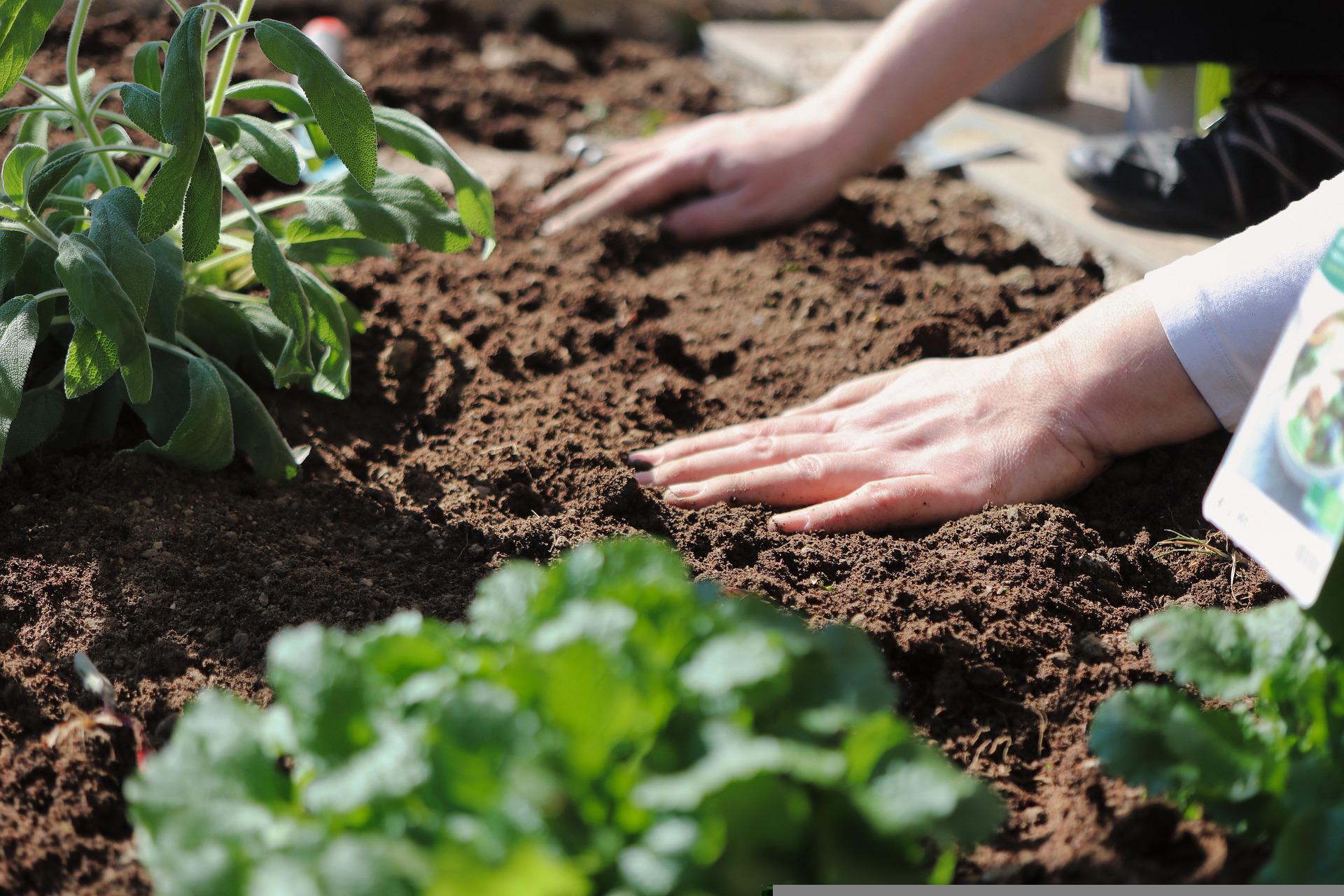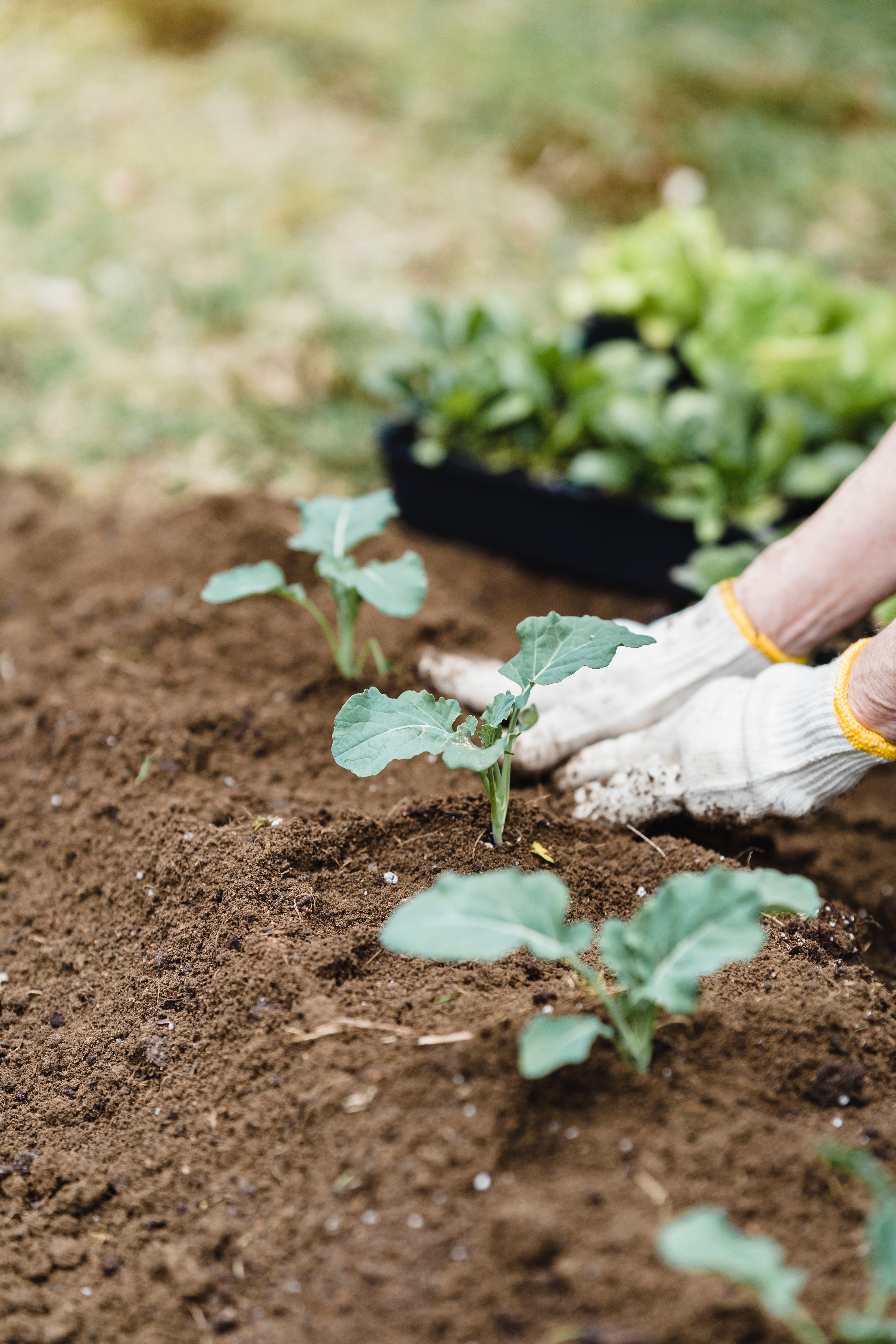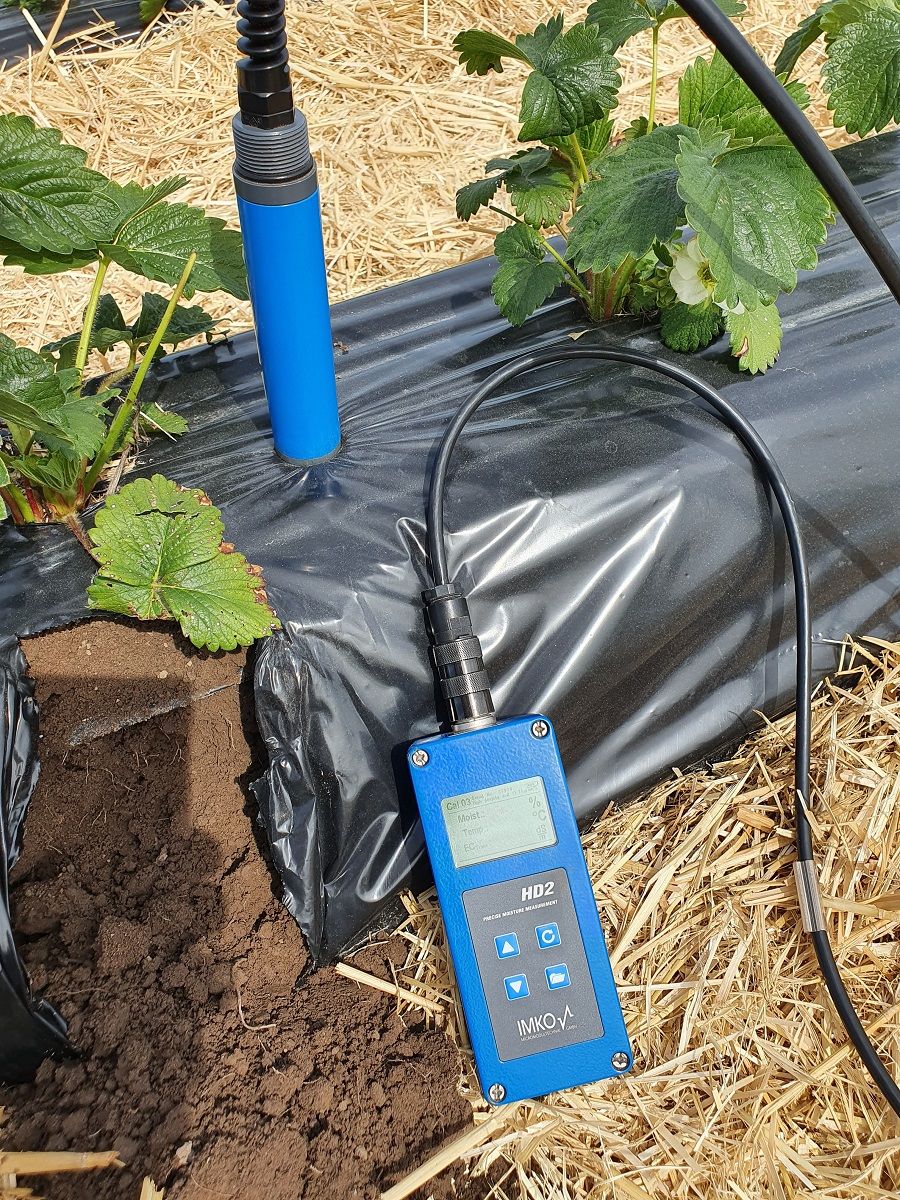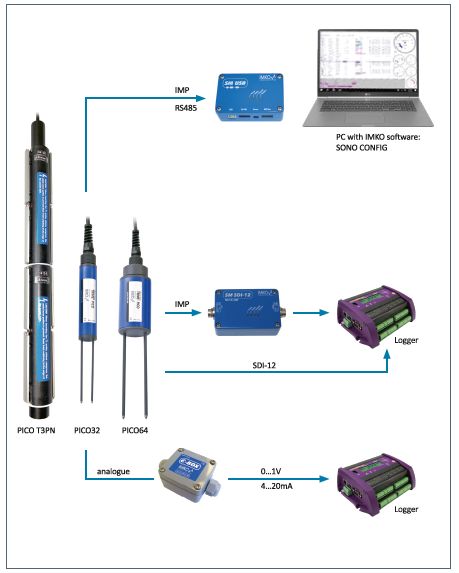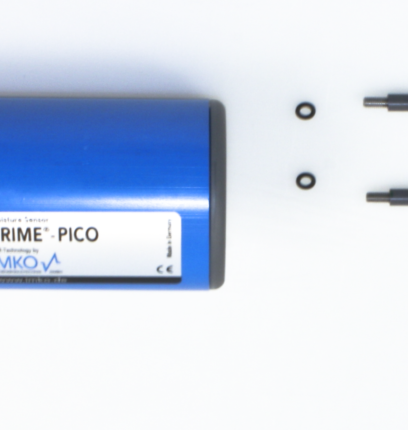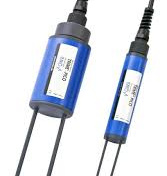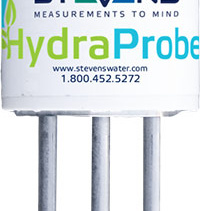Soil Moisture Monitoring
Soil moisture play an important role in different applications especially in agriculture and hydrology applications. In agriculture, it enables a crop's need for irrigation to be quantified in advance before showing signs of distress.
Knowing the soil moisture state allows for efficient irrigation by irrigating just when it is needed thus no water wasted when irrigation is not required. Soil moisture sensors, depending to the type of crops/ plants are typically installed near the root zone area for optimal measurements.
Soil Moisture
Soil moisture monitoring play an important role in different applications especially in agriculture application. Soil moisture conditions affect plant root water absorption and leaf transpiration, which further affect dry matter accumulation, and ultimately affect crop yield.
IMKO's TRIME PICO32 is the perfect measurement solution for soil moisture monitoring when high-resolution measurements are required to be carried out selectively in a very narrow pattern or volume-limited applications such as applications in topsoil, sports turf (golf, soccer), in parks, flower pots, scientific applications, in greenery on building facings and often to control irrigation or fertigation in agriculture.
Thanks to the various interfaces/ output the TRIME PICO sensors offers, they can be integrated to either portable readout units or our dataloggers. For permanent installation, data logger with wireless data transmission capability is recommended for remote monitoring.
Soil Nutrients Management
Soil nutrient management is an essential aspect of sustainable agriculture because it provides economic benefits to growers while reducing the negative environmental impacts of excess nutrient amendments.
Determining crop nutrient requirements is an important first step in developing a nutrient management plan. Professional soil testing is frequently used to determine a soil's nutrient-supplying capacity and physical makeup. The results of these soil tests will determine which management practices and soil amendments will increase crop yield or profitability, and they should be performed on a regular basis depending on the type of crops.
Nitrogen, potassium, and phosphorous are frequently the most important nutrients for growers to consider. Overabundance or excessive application of any of these nutrients may result in environmental degradation due to nutrient release into the surrounding environment. Soil testing can also reveal nutrient deficiencies and provide growers with information such as water holding capacity and soil acidity.
